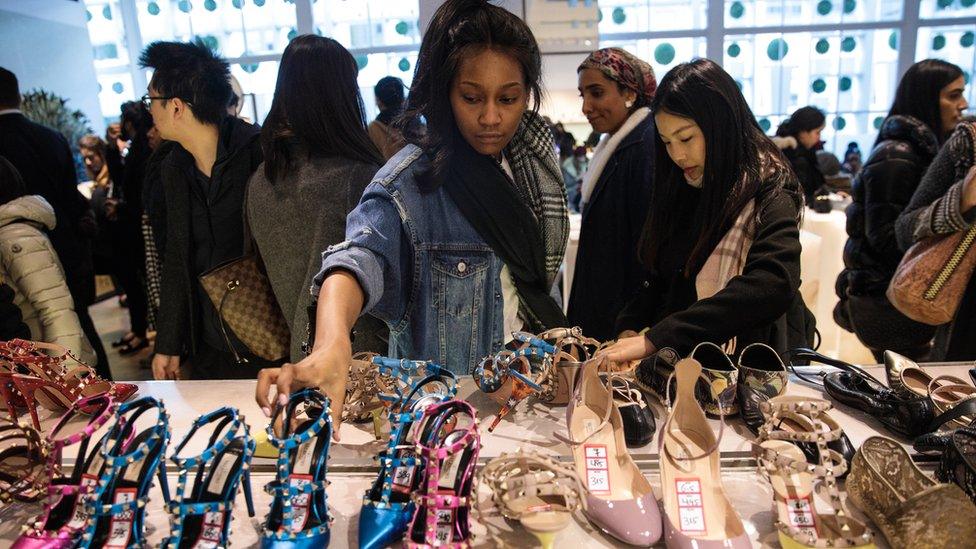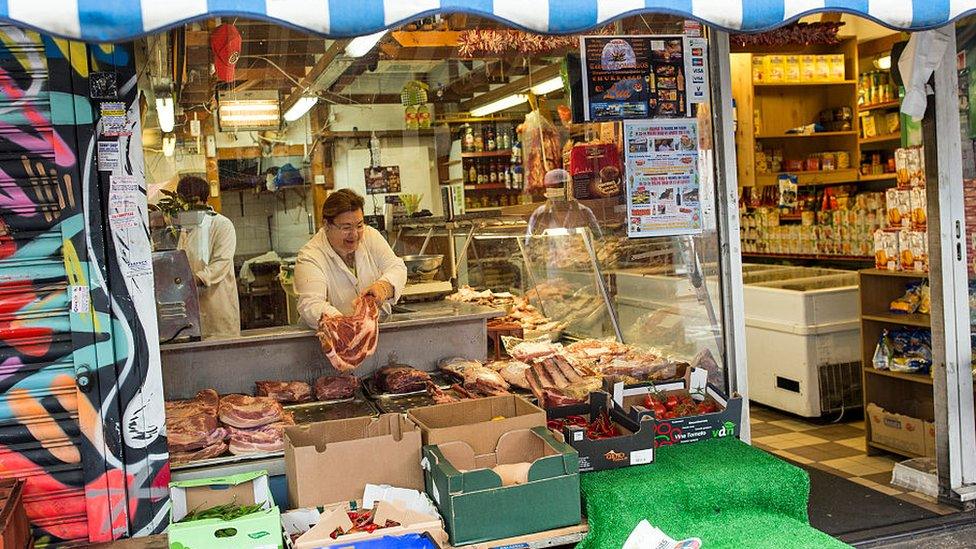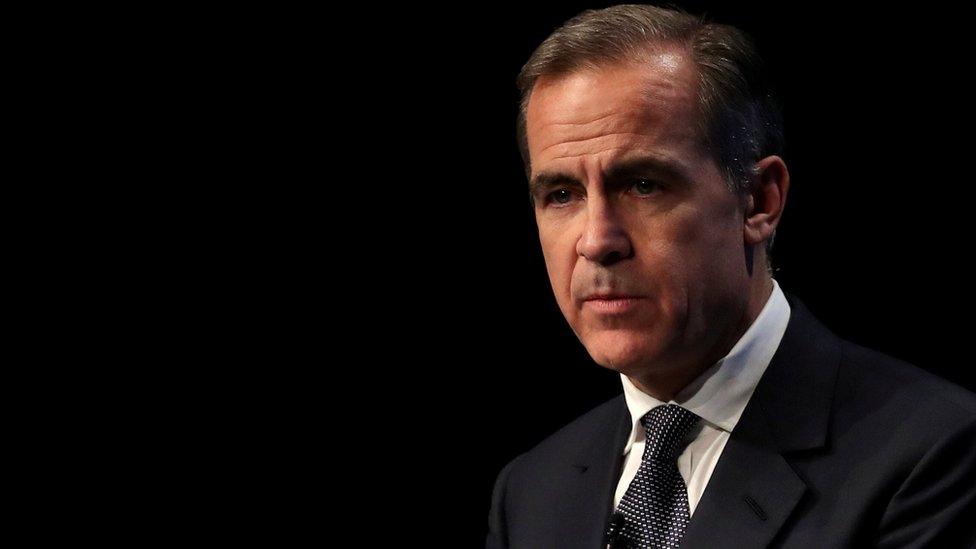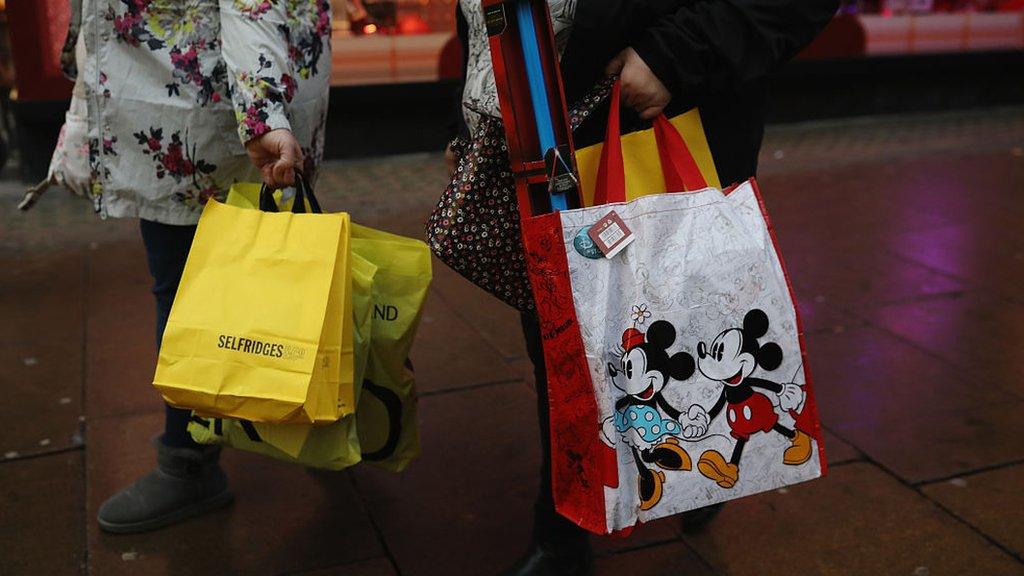UK retail sales fall sharply in December
- Published

Retail sales in December dropped 1.9% from the previous month, according to official figures.
Sales across all main retail sectors declined, with the heaviest falls coming at non-food stores, the Office for National Statistics (ONS) said, external.
It was the biggest monthly fall for more than four and a half years.
The Black Friday discounts in late November made it "even harder... to keep shoppers spending during December", analysts at Lloyds said.
Experts had predicted a much smaller 0.1% monthly fall.
'Tough 2017'
Retailers had a "disastrous December... much worse than expected," said Alan Clarke of Scotiabank.
Inflation figures earlier this week showed prices rose more than expected in December, "and now we also know that sales volumes fell", Mr Clarke said.
"This is likely to be the theme for the rest of the year - higher prices will reduce disposable income and hurt consumer spending growth," he added.
Martin Beck, senior economic adviser to the EY Item Club, said "the squeeze on households' real incomes is gradually tightening, implying a tough 2017 for retailers".
Clothing, footwear and household goods all saw "particularly sizeable drops" last month, he added.

Butchers enjoyed a strong Christmas, according to the ONS
However, when compared with a year ago, retail sales were up 4.3% in December.
"There were some notably strong figures from smaller retailers, in particular butchers, who reported a significant boost in sales in the run up to Christmas," said Kate Davies, ONS senior statistician.
Shoppers also bought more online, spending about £1bn a week, which was 21.3% higher than in December 2015.
Despite the disappointing December figures, "retailers shouldn't assume that they will lead to a bad January as well", said Keith Richardson, managing director of retail at Lloyds Bank Commercial Banking.
"Consumer spending held up - against expectations - after the EU referendum and it may do so again."
On Monday, Bank of England governor Mark Carney said household spending was still strong after the Brexit vote, but warned the UK economy was becoming overly reliant on consumer spending.
- Published16 January 2017

- Published17 January 2017

- Published20 December 2016
